9 Reasons To Buy Organic Food Whenever Possible

If you’re reading this article, the chances are that you’ve been debating for some time now just how necessary it is for you to spend your heard-earned cash on the extra costs associated with organic food.
And perhaps you’ve decided to go organic for some items, while cutting corners on others. And that’s ok. You do the best that you can.
Just so you know, the organic movement isn’t happening only in your head. According to a recent Gallup poll, nearly half of Americans actively try to include organic foods in their diet.1
Whether they’re buying organic from a conventional grocery store, a natural food store, or from direct-to-consumer outlets, consumer demand is leading to double-digit growth in the organic market.2
But this begs the question. What’s the difference between organic and non-organic food? And is it actually worth it?

The US Department of Agriculture sets standards that describe the specific requirements that must be checked by a certified agent before any item can be labeled organic.3
The USDA organic seal demonstrates a protection of natural resources, efforts to conserve biodiversity, and use of only approved substances.
Organic crops: The USDA organic seal verifies that irradiation, sewage sludge, synthetic fertilizers, prohibited pesticides, and genetically modified organisms weren’t used.
Organic livestock: The organic seal verifies that producers met animal health and welfare standards, didn’t use antibiotics or growth hormones, used 100% organic feed, and provided animals with access to the outdoors.
Organic multi-ingredient foods: Here, the USDA organic seal verifies that the product has 95% or more certified organic content. If the label claims that it was made with specified organic ingredients, you can be sure that those specific ingredients are certified organic.

Is Organic Worth the Expense?
The cost of organic farming and obtaining organic certification often leads to a higher price for organic foods. Despite the added costs, more and more consumers find that eating organic is worthwhile.
Dr. Andrew Weil, MD, and Dr. Amy Myers, MD, IFMCP (certified functional medicine practitioner) believe that eating organic is worth the added expense. Dr. Weil gives four reasons that organic food, gardening, and farming are best for human and planetary health.4
No pesticides: We know that conventionally grown foods consistently contain residues from pesticides that may be harmful.
More antioxidants: Organically grown fruits and vegetables appear to have higher antioxidant levels than conventionally grown foods.
Better for the earth: A 22-year study at Cornell University found that raising crops organically produces the same yields of corn and soybeans as conventional farming, but it uses 30% less energy and water (and no toxic chemicals).
Efficient: Contrary to arguments that only conventional farming methods can meet the world’s need for food, a series of studies has shown that organic farming is just as productive, if not more so.

Dr. Amy Myers offers the following food for thought: “Our great-great-grandparents subsisted on a completely organic diet. Modern, conventional farming methods that involve the use of genetically modified organisms (GMOs), synthetic fertilizers, pesticides, and herbicides simply didn’t exist back then. Over the last century, our diet and farming practices have changed significantly; however, our bodies and our genetics haven’t.”5
Dr. Myers says that you should avoid conventionally farmed food because:
- Eating organic helps to reduce your body’s total toxic burden.
- Organic foods are, by definition, non-GMO.
- Organic farming is good for the earth.
- Organic crops are more nutritious.
Let’s look more closely at 9 reasons why more and more doctors recommend eating organic foods, as well as the studies that support their claims.

Reason #1: Reduced Chemical Exposure
Agricultural chemicals used in conventional farming don’t remain on the surface of crops. Chemical pesticides, herbicides, and fungicides have been found inside the fruits and vegetables themselves. Nearly two-thirds of the 3,015 produce samples tested by the USDA in 2013 contained pesticide residues.
It isn’t just raw produce that contains pesticide residue. The USDA has even been monitoring pesticide levels in samples of baby food, including applesauce, carrots, peaches, and peas.
In 2014, the USDA detected ten different pesticides on at least 5% of 777 samples of peach baby food sold in the US. The USDA also tested 379 baby food applesauce samples for five pesticides. 23% of samples contained acetamiprid, a neonicotinoid pesticide. 10% contained carbendiazim, a fungicide. It found six different pesticides in apple juice, with 17% containing diphenylamine, a pesticide that has been banned in Europe since 2012.6
Now that pesticides have been found in baby food, some doctors recommend feeding children organic foods. “Smaller body size increases the proportional exposure to food contaminants,” says David Katz, MD. “For this reason, organic baby food is a good idea, as is organic food for young children when possible.”7
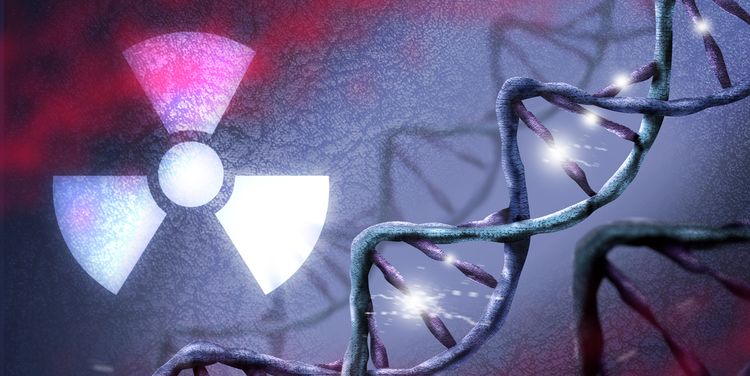
The negative effects of agricultural chemical exposure have been widely studied.
Exposure to agricultural chemicals has been linked to epigenetic changes that alter the stress response and disease rates in future generations.
In one study, exposure to vinclozolin, a common agricultural fungicide, was associated with an altered stress response in the great grandchildren of test rats.
Exposure to common agricultural pesticides such as DEET, permethrin, methoxychlor, and vinclozolin was associated with a tendency to develop a variety of adult-onset diseases. These effects were still detectable in animals over four generations later, with no reduction.8

A review on pesticide exposure and cancer supports efforts to reduce these toxins. Pesticide exposure has been positively associated with non-Hodgkin lymphoma and leukemia, and some studies showed a dose-responsive relationship.
Children and pregnant women’s exposure to pesticides has been positively associated with cancer in some studies, and many have linked exposure to solid tumors. The most consistent associations were found for brain and prostate cancer.9
Glyphosate is the main ingredient in Roundup, the most widely used herbicide in the US. The World Health Organization has recently classified glyphosate as probably carcinogenic to humans. Their report concluded that not only is there sufficient evidence that herbicide causes cancer in experimental animals, but that glyphosate also caused DNA and chromosomal damage in human cells.10
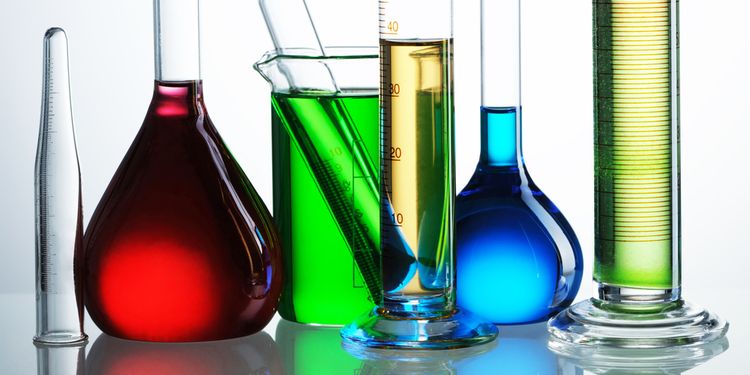
Reason #2: Avoiding Harmful Inert Ingredients
It’s not just the main ingredients in agricultural chemicals that have been found to be harmful.
One study looked at the combination of ingredients in Roundup and discovered that the inert ingredients amplified the toxic effect on human cells, even at concentrations more diluted than what’s used on household lawns and farms.
Researchers were astonished to find that one of these inert ingredients, polyethoxylated tallowamine, or POEA, was more deadly to human embryonic, placental, and umbilical cord cells than the herbicide itself. The research team suspects that this herbicide may cause pregnancy problems that lead to abnormal fetal development, low birth weights, or miscarriage.11
“Glyphosate and its commercial herbicides severely affect embryonic and placental cells, producing mitochondrial damage, necrosis, and programmed cell death with doses far below the used agricultural concentrations,” says Kelly Brogan, MD.
Dr. Brogan recommends that pregnant women in particular eat organic. “Make a statement by committing to prioritization of organic foods, keeping in mind that these chemicals can’t be washed or cooked off.”12

Reason #3: Protecting Children From Risk
The American Academy of Pediatrics published a report in 2012 that, for the first time, recognized that an organic diet for children reduces exposures to pesticides and may reduce diseases.13
According to the report, “Evidence is increasingly emerging about long-term health implications from both acute and chronic exposure. A growing body of epidemiological evidence demonstrates associations between parental use of pesticides, particularly insecticides, with acute lymphocytic leukemia and brain tumors. Prenatal, household, and occupational exposures (maternal and paternal) appear to be the largest risks.”
The AAP officially recommended that “children’s exposures to pesticides should be limited as much as possible.”14

Chris Kresser, LAc, MS finds it particularly important for young children and women who are trying to conceive, are pregnant, or are breastfeeding to eat organic, “because they’re more susceptible to being harmed by pesticide residue and heavy metals.”15
“Pound for pound, children eat 3-4 times more food than adults, and their little bodies, brains, organs, and immune systems are still developing.
Pesticides and other chemicals that interfere with this development can mean really detrimental and lasting results,” holistic health coach and environmental toxins expert Lara Adler warns.
Pesticide exposure has been linked to birth defects, developmental delays, learning disabilities, neurological problems, early onset puberty, obesity, diabetes, and cancers.16
Reason #4: Healthier Produce
Dr. Weil and Dr. Myers share the opinion that organic foods are healthier, and they’re not alone. Ronald Hoffman, MD, agrees. “Organic trumps conventional big-time, and it’s worth paying a slight premium and going out of your way to source organic foods whenever possible.”17
Dr. Hoffman references a 2014 meta-analysis comprising 343 peer-reviewed papers to come to this conclusion. The nutritional superiority of organic produce was affirmed—studies showed that organic produce has:
- 69% higher levels of flavanones
- 28% higher levels of stilbenes
- 50% higher levels of flavonols
- 51% higher levels of anthocyans
The researchers also found that conventional crops had detectable pesticide residue four times higher than organic crops. With the negative effects of agricultural chemicals well documented, that alone places organic as a healthier alternative to non-organic foods.
Finally, British Journal of Nutrition researchers found that organic crops had, on average, 48% lower levels of the toxic heavy metal cadmium. Cadmium can accumulate over time, causing health effects such as kidney damage, hypertension, cardiovascular problems, and neurological diseases.18
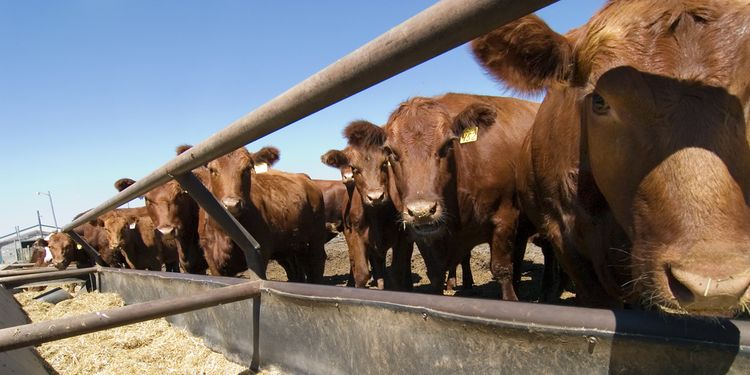
Reason #5: Healthier Meat and Dairy
Organically raised livestock and dairy offer health benefits over their conventionally farmed counterparts.
An 18-month study on milk revealed 62% more healthy omega-3 fatty acids in organic milk.19
Primal Blueprint author Mark Sisson recommends eating organic meats in order to avoid the antibiotics given to conventionally raised livestock. “Organic livestock never receive antibiotics (if they do, they must be shipped off to slaughter as conventional food, or sold to a conventional producer), whereas conventional farming often employs antibiotics to stimulate weight gain in otherwise healthy livestock.”
Nearly 80% of the antibiotics produced in the US today go to animals raised for food to make them grow faster and to protect them against disease on unsanitary industrial farms.20
Sisson backs his position with a recent study from the FDA that found antibiotic-resistant bacteria on half of the conventionally raised beef, chicken, pork, and turkey found in US stores.2
Antibiotic-resistant bacteria are emerging primarily because of excessive use of antibiotics, and these bacteria can’t be controlled or killed by antibiotics, which is an important public health problem recognized by the CDC.22, 23

Reason #6: Pesticides Linked to Infertility
Pesticide exposure has been linked to both male and female fertility issues. Couples trying or planning to conceive have good reason to seek out organic foods.
Geovanni Espinosa, ND, director and founder of the NYU Integrative Urology Center, recommends eating organic foods whenever possible to avoid pesticides that could affect sperm formation by changing the structure of sperm cells.24
A study published in the Journal of Human Reproduction found a 49% lower sperm count and 32% fewer normally-formed sperm in men who ate fruits and vegetables with high levels of pesticide residue.25
Female fertility is also at risk from pesticide exposure. According to a review published by scientists with Reproductive Biology and Endocrinology, some pesticides may interfere with female hormonal function, which may lead to negative effects on the reproductive system through disruption of hormonal balance.
Infertile women were three times more likely to have been exposed to pesticides and nine times more likely to have worked in agriculture. The mechanisms of infertility included disruption of hormonal function, ovarian cycle irregularities, and direct damage to the structure of cells.26

Reason #7: Organic is Better for the Earth
There’s growing evidence that organic farming practices better address issues related to climate change than non-organic methods.
A Washington State University study reports that many of the climate change advantages of organic farming flow from its exclusive use of organic fertilizers.27
Joel Fuhrman, MD agrees. “When we buy organic, we minimize our pesticide exposure, and we’re also minimizing the amount of these pesticides that our environment is exposed to. Organic farming is clearly the more environmentally-friendly choice.”
Dr. Fuhrman believes organic farming integrates practices that foster the cycling of resources, reducing farmland and farmworker exposure to potentially harmful chemicals, and even benefiting insects such as bees and earthworms that are essential for the health of the planet.28
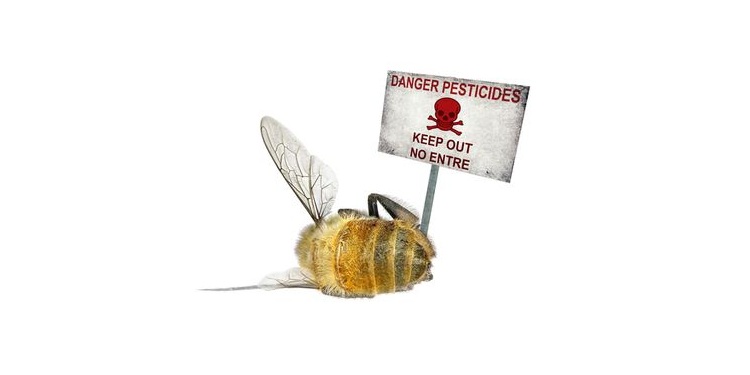
Bees may be at particular risk from non-organic farming practices. Some crops, including blueberries and cherries, are 90% dependent on honeybee pollination. For many others, crop yield and quality would be greatly reduced without honey bee pollination.
Researchers have documented several neonicotinoid products that are toxic to bees. Depending on the amount of exposure to neonicotinoids, the effect on bees can be lethal or sublethal—impaired learning behavior, short- and long-term memory loss, reduced fertility and reproduction, and altered foraging behavior and motor activity.29
“The benefits of organic farming are undeniable. Crops grown without chemical pesticides don’t contaminate the earth with toxic substances. Organic farmers use crop rotation and other natural processes to keep the soil healthy and fertile,” Deepak Chopra says.30
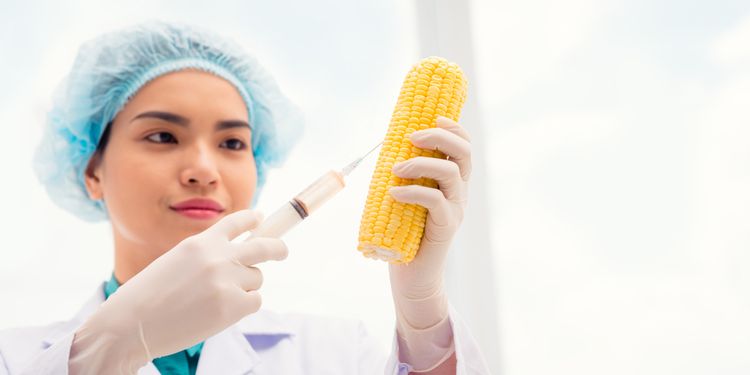
Reason #8: Avoiding GMO Foods
To carry the Certified Organic seal, a food must be verified to be free of genetically modified organisms. Roughly 90% of the canola, corn, soy, and sugar beet crops in commercial production in the US are genetically modified.
According to an FDA policy established in 1992, GMO crops are considered “substantially equivalent” to non-modified crops—they’ve been designated as “GRAS” (Generally Recognized as Safe) and don’t require pre-market approval.31
“At this point, the scientific community is still gathering data, but my hunch is that GMOs aren’t good for your body, and we need to apply the precautionary principle,” says Sara Gottfried, MD.
Dr. Gottfried is cautious of some potential red flags from these crops, which have been engineered for a desired trait, such as insect resistance, starch content, or resistance to herbicides. “These traits change the genetic makeup, nutritional value, and even the presence of helpful bacteria in the food that we eat every day.”
Dr. Gottfried warns that GMOs contain artificial gene sequences that are unfamiliar to your microbiome, causing your immune system to attack and leading to chronic inflammation and medical issues.34
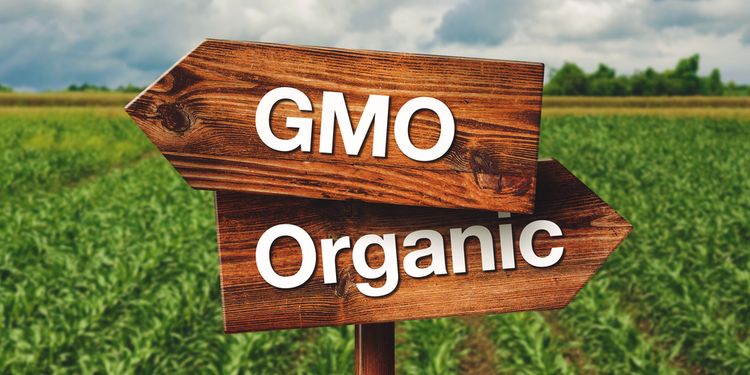
Avoiding GMOs is one of the reasons Dr. Andrew Weil eats organic foods. “I strongly support organic farming, which avoids the application of synthetic chemicals to food crops and uses no genetically modified organisms (GMOs).”35
Proponents for GMOs argue that genetically engineered foods will “feed the world,” outperforming organic crops and ending hunger. Dr. Weil disagrees. He references a 30-year study by the Rodale Institute that had the following results:
- Organic yields match conventional yields.
- Organic outperforms conventional in years of drought.
- Organic farming systems build rather than deplete soil matter, making it a more sustainable system.
- Organic farming uses 45% less energy and is more efficient.
- Conventional systems produce 40% more greenhouse gases.
- Organic farming systems are more profitable than conventional.36
It’s evident from this and other studies that organic farming practices can indeed feed the world as well as, if not better than, conventionally grown and GMO crops.
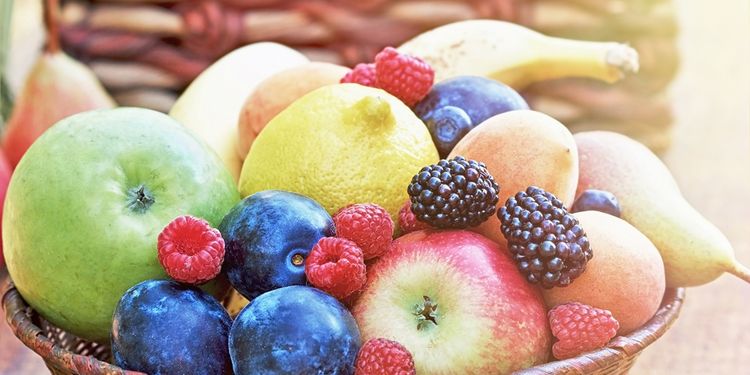
Reason #9: All Food is Not Created Equal
Dr. Alejandra Carrasco warns against non-organic food and suggests carefully reading labels when shopping. “Think twice about buying produce and foods that have been genetically altered or sprayed with pesticides. If a food or food product is labeled 100% organic with the USDA Organic seal, it must be completely free of genetically modified products and herbicides by government regulations.
On the other hand, foods that are labeled ‘made with organic ingredients’ or simply ‘organic’ aren’t as tightly regulated and can contain GMOs. To be sure your food is GMO- and pesticide-free, buy USDA certified 100% organic food.”37
Unfortunately, all food today is not created equal. “A hundred years ago, all food was organic, local, seasonal, fresh, or naturally preserved by ancient methods. All food was food. Now less than 3% of our agricultural land is used to grow fruits and vegetables, which should make up 80% of our diet,” says Dr. Mark Hyman.38
Food is no longer grown or produced the way it once was. As a result, conventionally produced food is often laced with multiple agricultural chemicals or is genetically engineered. Choosing to eat organic food allows you to reduce pesticide exposure, receive more health-promoting antioxidants, reduce antibiotic-resistant superbugs, avoid GMOs, and promote better farming practices to protect the earth.
The bottom line: organic food is always worthwhile. If you can afford it, it’ll pay it itself back in spades, in the form of preserving and improving you and your family’s health.
